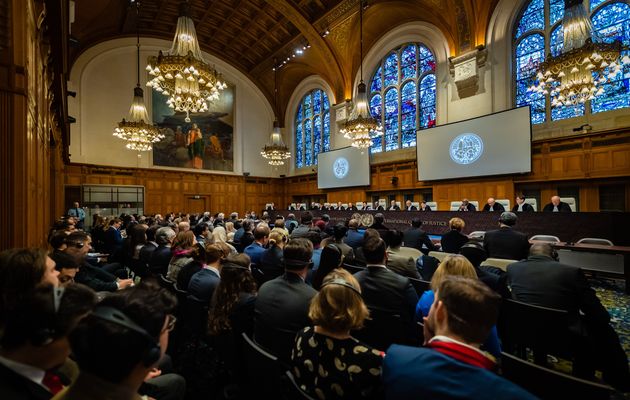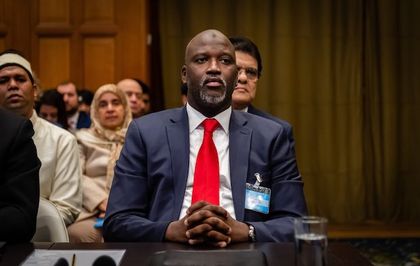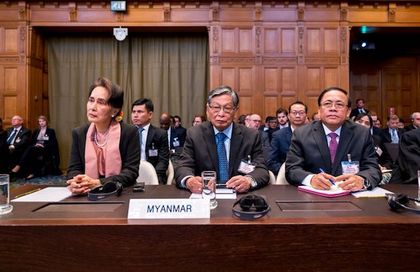The UN International Court of Justice has issued precautionary measures to protect the Rohingya minority.
 One of the ICJ sessions of the case of Gambia against Myanmar. / Twitter @CIJ_ICJ
One of the ICJ sessions of the case of Gambia against Myanmar. / Twitter @CIJ_ICJ
Myanmar must “take all measures within its power to prevent the killing of Rohingya, or causing bodily or mental harm to members of the group, including by the military or any irregular armed units”.
The country also has to “submit a report within four months, with additional reports due every six months, until a final decision on the case is rendered by the Court”.
That is what the United Nations International Court of Justice (ICJ) has ordered, after a case against Myanmar was brought to them in November by Gambia, on behalf of the Organization of Islamic Cooperation (OIC), arguing that “the mainly-Muslim Rohingya had been subjected to genocide”.
The decision has shaken the international political sphere, as it points to the management of the government of Aung San Suu Kyi, Nobel Peace Prize in 1991 and the current state counsellor of Myanmar.
GAMBIA: “ASK MYANMAR TO STOP THESE SENSELESS KILLINGS”
Last December, San Suu Kyi, testified at the start of court proceedings on behalf of her country, describing the case as “an incomplete and misleading factual picture of events in Rakhine state”.
The state counsellor denied the accusations of genocide and said that it is “an internal armed conflict, started by coordinated and comprehensive terrorist attacks on police posts”.
This case is not just politically relevant, but the international community is also looking at the religious freedom and the ethnic nature of the conflict. The Gambian Justice Minister, Abubacarr Tambadou, said that “all that Gambia asks is that you tell Myanmar to stop these senseless killings”.
 The Gambian Justice Minister, Abubacarr Tambadou, started the case. / Twitter @CIJ_ICJ
The Gambian Justice Minister, Abubacarr Tambadou, started the case. / Twitter @CIJ_ICJ
“MYANMAR FACES A REAL AND ONGOING DANGER OF GENOCIDE”
In Gambia (West Africa) the majority of the population declares themselves Muslim (88% according to Joshua Project), a stark contrast with Burmese Buddhist radicalism orchestrated by Ashin Wirathu and other prominent monks in Myanmar, where Buddhism is the religion of more than 71% of the population.
Because Myanmar “faces real and ongoing danger of being victim of genocide”, the Hague court “fixed 23 July 2020 and 25 January 2021 as the respective time-limits for the filing of a Memorial by the Republic of Gambia and a Counter-Memorial by the Republic of the Union of Myanmar”.
Although more than 700,000 Rohingya fled to neighbouring Bangladesh, following a military crackdown in August 2017, this conflict is far from being the only current scenario of religious intolerance.
A PRECEDENT FOR PERSECUTED CHRISTIANS?
According to the 2020 Open Doors World Watch List, 260 million people constantly suffer hostilities and violence because of their Christian faith worldwide, to the point that, only in 2019, they registered 2,983 murders and 9,488 attacks on churches.
United Nations first celebrated the International Day of Commemoration of Victims of Violence-Based Acts of Religion and Beliefs last August, but the situation of Christians in countries such as North Korea, Afghanistan, Somalia or Myanmar itself (number 19 on the World Watch List) has not transcended simple official statements.
The case of Gambia against Myanmar may set a precedent for other countries, to also bring before the ICJ in The Hague the persecution that different Christian minorities suffer in many countries.
 The state counsellor of Myanmar, Aung San Suu Kyi, during the hearing at the ICJ. / Twitter @CIJ_ICJ
The state counsellor of Myanmar, Aung San Suu Kyi, during the hearing at the ICJ. / Twitter @CIJ_ICJ
MORE THAN JUST AN ETHNIC ISSUE
However, the conclusion of ICJ in The Hague is addressed from an ethnic point of view, referring to the Rohingya as just racist discrimination, with almost no mention of the religious nature of this issue, although some Buddhist leaders, such as Wirathu, talk about wanting to “prevent Muslims from controlling the country”.
That leads to the risk of forgetting clear cases of religious discrimination, in which there is not a xenophobic component, as is the case in most contexts in which Christians are persecuted.
That is why it is necessary to clarify the definition of the term ‘genocide’ that the court is using throughout the process, to see to what extent the religious status of a group might be added as a motivation for hostilities and violence.
We will see if this trial generates a response in other countries that, like Gambia, mobilize to guarantee the protection of religious freedom throughout the world.
A CONFLICT FROM THE COLONIAL AGE
After its independence from the United Kingdom in 1948, Myanmar has lived much of its contemporary history under a military dictatorial regime that reached power in 1962 and held it until 2011.
Despite the creation of a solid government in 2016, with the election of Suu Kyi, the army continues to retain much power and influence in the country.
The Rohingya are descendants of Bangladeshi settlers who settled in the state of Rakáin during the 19th century.
In recent years, clashes between the army and the insurgent group of the Rohinyá Slavation Army of Arakán, whose aim is to create an independent state, have intensified.

Las opiniones vertidas por nuestros colaboradores se realizan a nivel personal, pudiendo coincidir o no con la postura de la dirección de Protestante Digital.
Si quieres comentar o